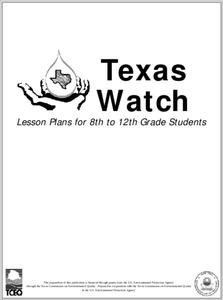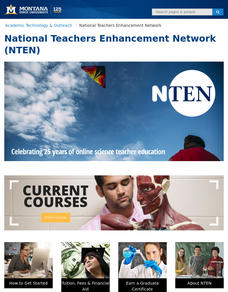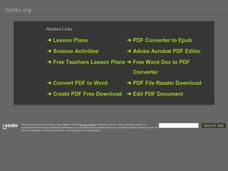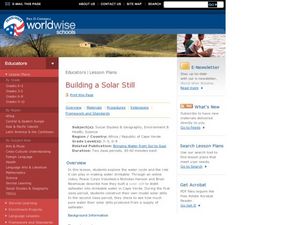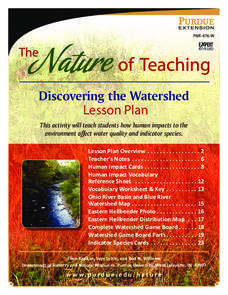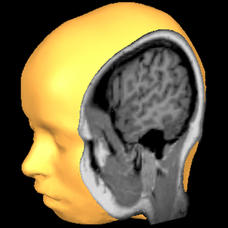Nuffield Foundation
Assessing Human Hearing
Young scientists explore hearing through multiple experiments, demonstrations, and activities. They focus on the changes in hearing over a lifetime, how we can determine where a sound is coming from, and the ability to filter noises.
Curated OER
Freshwater Fish Water Quality
Sixth graders work together to complete an experiment about the quality of freshwater. In groups, they collect fresh water samples from a variety of sources and test the pH levels. After completing a KWL chart, they test the amout of...
Whitman College
Virtual Fetal Pig Dissection
Pigs and humans have the same metabolism level and similar organs and systems, which is why they are often used in scientific laboratories. This worthy virtual dissection of a fetal pig divides into eight chapters: anatomical references,...
Curated OER
Water Quality Sampling
Learners explore the water qualities in Texas. They evaluate the water quality of six different samples by observing and smelling them. They present a list of the cups that contained good water quality based on their observations. They...
Curated OER
Do Human Practices Affect Water Quality?
Students determine if human practices have any noticeable effects on the quality of stream life as measured by the presence of certain macroinvertebrates. They collect, preserve and identify macroinvertibrate samples and quantify the data.
Curated OER
Water Quality Monitoring
Students comprehend the four parameters of water quality. They perform tests for salinity, dissolved oxygen, pH and clarity or turbidity. Students comprehend why scientists and environmental managers monitor water uality and aquatic...
Curated OER
Water Quality Monitoring
Young scholars study the water quality of a stream in their area, by measuring the temperature, pH, alkalinity and conductivity. They integrate biology with earth science when using the microscope to study the living organisms in the water.
Curated OER
Water Quality
Students examine pieces of expository writing. They identify key words and vocabulary. In other activities, they read about water quality to practice reading for comprehension.
Curated OER
Human Rights Education Handbook: Perpetrator, Victim, Bystander, Healer
Students describe a time when they played different roles regarding human rights. They are divided into small groups and assigned roles of "Perpetrator," "Victim," "Bystander," and "Healer." Individual students give an example of a time...
Curated OER
The Impacts of Human Activities on Biodiversity in New Haven County
Students discover how plants and animal ecosystems are affected by the growth of a city. In this ecology lesson, students study and observe a plant over a period of time. They develop a creative presentation of their data and share them...
NOAA
What Killed the Seeds?
Can a coral cure cancer? Take seventh and eighth grade science sleuths to the underwater drugstore for an investigation into emerging pharmaceutical research. The fifth installment in a series of six has classmates research the wealth of...
Curated OER
Point- vs. Non-point Pollution
Students differentiate between point and non-point pollution and determine how the different types of pollution are harmful to aquatic ecosystems. They complete a series of tests on a sample of "polluted" water and a sample of "pure" water.
Curated OER
Building A Solar Still
Students investigate the water cycle by viewing an online video. In this drinking water instructional activity, students create solar stills at their campus in order to purify water that is tainted. Students view a video on their...
Purdue University
Discovering the Watershed
Human impact on watersheds can make or break an ecosystem. Learners use a game to learn about the impact human choices have on water quality and the organisms that depend on it. The activity includes a game board and game cards that tell...
Rainer Goebel
Brain Tutor 3D
The human brain is staggeringly complex, and its structure can seem impossible to grasp. This user-friendly app allows for exploration of the brain's anatomy, providing nomenclature, 3-D mapping, and functions.
It's About Time
The Water Cycle
Explore the water cycle with a hands-on earth science activity that prompts pupils to measure the amount of water normally transpired by plants. After they describe the flow of the water cycle and provide examples of how human activities...
National Energy Education Development Project
Exploring Hydropower
In 2006, about 20 percent of the world's electricity was generated from hydroelectric power. In the presentation, scholars review the water cycle and gravitational energy to begin to understand how humans harness the power of water. They...
Project WET Foundation
We All Use Water
How many ways is water used? Indirect and direct water use are the two main ways humans use water, but the usage comes in many forms. Animals, agriculture, industries, transportation, and many more rely on water for different uses....
Channel Islands Film
Arlington Springs Man: Lesson Plan 1
Learning to craft quality questions is a skill that can be taught. Class members use the Question Formulation Technique to learn how to create and refine both closed-ended and open-ended questions. They then view West of the West's...
Bully Free Systems
Bully Free Lesson Plans—Fifth Grade
Two lessons take a look at bullying. Lesson one focuses on physical bullying. Scholars identify the bullying type's qualities, read short stories and answer comprehension questions. Lesson two offers advise on what to do as a bystander...
Curated OER
Increasing Multicultural Understanding Through Folk Literature
Students read folktales from around the world comparing two of them using a computer generated Venn diagram. They create a game based on a folktale and use software to create a listening library of folktales.
Curated OER
Watershed Protection
Learners explore environmental care by participating in an Earth science activity. In this clean water lesson, students discuss what a watershed is, how they become polluted, and how it affects the overall quality of drinking water....
Curated OER
Watershed Documentary
Students conduct research and collect data about a local watershed area. They create an iMovie showing the human and natural impacts on the creek and watershed areas.
Curated OER
Body Shields: Peaceful Protesters or Iraqi Pawn?
Students research human shields, mostly European peace activists who stand against war. They guard civilian sites to prevent attack on schools, hospitals, etc. Student research is to include articles by those who support the war as well...





